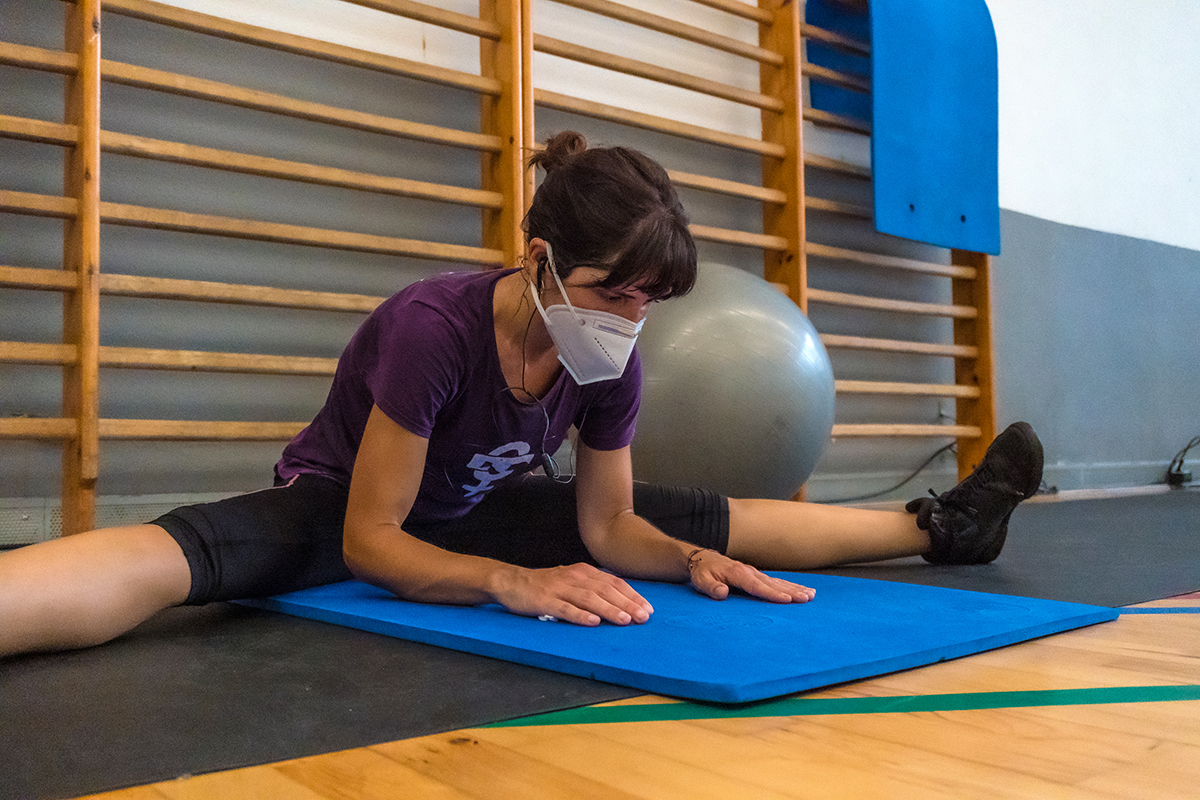The world of exercise and fitness was struck hard by the COVID-19 pandemic, taking access to gyms and fitness centers away for a period of time. With these facilities returning to their open availability, many individuals who personally experienced having COVID-19 have been posed with the question of when is it safe and okay for them to return to exercising again. Factors to consider include, of course, not wanting to spread the virus. But from a medical perspective, when is the body ready to safely return to exercising?
Internally, the immune system has just been through warfare depending on the strain and severity of the contracted virus, so the first consideration is feeling confident that symptoms have been eradicated during normal daily living activities, before venturing on to performing more strenuous or even mild/moderate forms of physical activity. COVID-19 affects the lungs (respiratory system), causing severe inflammation. Normal functioning of taking in oxygen and releasing carbon dioxide becomes impaired when the virus impedes by increasing fluid in the lungs and inflammation. Therefore, breathing becomes the common exercise inhibitor when first getting back into movement patterns. In fact, the CDC estimates that 3-17% of COVID-19 patients develop a complication known as Acute Respiratory Distress Syndrome (ARDS). A simple test for readiness is trying to walk quickly for 500 meters without feeling breathless or fatigue. From this self-assessment, endurance and intensity can progressively improve.

Returning to strength training can be challenging when considering cardiac output and fatigue depending upon resistance training goals and modalities. Therefore, it is best to work in the endurance phase for 2-4 weeks prior to strength or power training. This will help prepare the body for more intense training as well as let the body adjust to feelings of fatigue and breathlessness that might occur. A negative COVID test does not equate to the body returning to its normal workload capacity right away. Patience is key and although this can be a frustrating feat for athletes and avid gym-goers alike — movement is medicine but overtraining in sub-optimal conditions only prolongs the perceived setback.
There is no exact timeline upon returning to exercise post-COVID, but one way fitness professionals and individuals can gradually and safely do so is to utilize the “Rate of Perceived Exertion” to modify and accommodate for any potential risks. An example of this is the Borg Rating of Perceived Exertion (RPE), using a scale of 6-20 with 6 being no exertion and 20 being maximal exertion. Realistically working between 6 and 11 to start and pacing oneself to 12-15 and above is a good road map. Wearing a heart rate monitor can also be helpful with the understanding that if you are working at a higher level than what your lungs currently want to or can even do, taking resting breaks before returning the exercise is recommended. Exercising over time will help repair the body’s systems to again function as efficiently as before.
Megan Johnson McCullough is the owner of Every BODY’s Fit in Oceanside CA. She is a NASM Master trainer, holds an MA in Physical Education & Health Science, and is a current candidate for her Doctorate in Health and Human Performance. Megan also holds specializations in Corrective Exercise, Senior Fitness, Fitness Nutrition, Drug and Alcohol Recovery, and is an AFAA Group Exercise Instructor. She’s also a fitness model, professional natural bodybuilder, and published author.
References
- Salman, D., Vishnubala, D., Le Feuvre, P., Beaney, T., Korgaonkar, J., Majeed. A. et al. (2021). Returning to physical activity after covid-19. BMJ, 372:m4721. doi:10.1136/bmj.m4721
- Yale School of Medicine (2021). Challenge 5: How does covid-19 affect the respiratory system? https://medicine.yale.edu/coved/modules/virus/respiratory/

